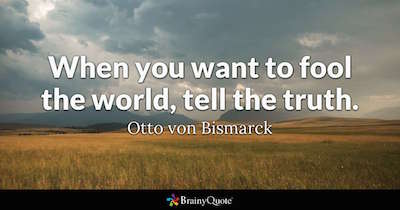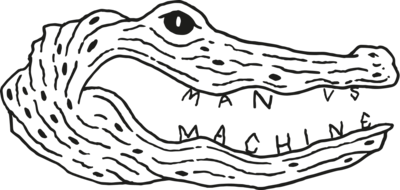LETTERS FROM THE GLOBAL PROVINCE
Germany is Broken, Global Province Letter, 15 November 2017
Seeking with the soul the land of the Greeks.
-Johan Wolfgang von Goethe, 1779
Grass seems to be saying that it is only when the Germans acknowledge who they have been, who they are, and what concrete possibilities exist for them in the 20th century that they will be able to become a nation in the true sense of the word; only then will they not fall prey, as they so often have in the past, to the first demagogue who comes along; only then will they be proof against the specious argument that what Germany needs is neither progress, nor reform nor change, but simply an ersatz national glory, a fake national soul.
-Keith Botsford on Grass and the German condition.
Finding Big Men. We nattered on in November 1975 with the CEO of one of the handful of America's truly great companies. We wondered how to find great men who do great things. Even as we made our way to the elevator, we pondered. "How," we asked, "can we tell if we have run across a big man?" "You can always tell," he countered. "These big fellows create an excitement around them that is immensely bigger than their physical presence"? What an uplifting note! Our conversation and the doors closed on a high. Greatness, we imagined, is around to be had.
But as the elevator plunged downwards we wept inside to think we actually encountered precious few big men within New York City, around the country, about the globe. Most of our top people are simply administrators who move the deckchairs a few feet and labor mightily over their shuffleboard scores.
Without big men, we have contended, inertia strangles the earth. In the present day, we are ruled by con men and thugs, progress and mankind the victims.
Germany 2017. Just before its recent elections, we visited the principal cities of Germany. We did not bump into an excess of giants or an abundance of greatness there. The other vaunted Western democracies aren't much better off, except that the peculiarities of German culture magnify this deficiency. It is said the Germans love to give orders. There is only one thing they like better—to take orders. Since in Germany what people do is very much determined from on high, from bosses and governors locked away in their eyries, the Germans are particularly dependent on having giants at the top—in their armies, in government, in the corridors of business. In America we can stumble about with rather shallow men at the top, because unseen, unsung heroes in the middle ranks make up for the hollow suits at the top.

The Germans have not had great leadership since the 19th century, when Otto Eduard Leopold, Prince of Bismarck, virtually put the country together and made it a great state. Germany was rather well ruled until 1890 when the young and foolish Kaiser Wilhelm put him out to pasture. Germany has never been well led since. In a country given to autocracy, it never has gotten that broad shouldered autocrat back at the breakfast table of government. Instead it has promulgated foolish world wars which devastated the world and from which, we must understand, the German soul has never recovered. With all its prosperity, Germany is not well. Impassive Berlin looks unkempt: walking about you may see weeds growing in the sidewalk or upon the street. Many international visitors are shocked to visit Berlin, which almost seems like a passe capital, not at all in the league of capital cities such as Paris, London, Vienna, Rome, or Washington. It does not require a major flight of fancy to read a quiet despair in German faces.
The able Prime Minister Angela Merkel has been dealt a very difficult deck, and handled it rather well. She has been a force for stability both in Germany and in the world. This is not at all bad, since she must deal with an untutored nut in Washington (Trump) and two hooligans to the East (Erdogan in Turkey and Putin in Moscow). Internally she has to pretend that all is right with the Bundesrepublik Deutschland, even though she has been treading water on a host of infrastructure and other systemic problems that will have to be addressed in the next five years, especially if the demagogic new Alternative for German (AID) party is to be contained.
The Trains Don't Run on Time. We rode the national trains some distance and can report you could no longer use Immanuel Kant's vaunted watch to tell when the trains will arrive. All reports to the contrary, they don't run on time. When we talked with Mark, our wonderful driver in Munich, about their famed on-time record, he laughed and told us we were hopelessly out of date. To wit, our worst train was 3 hours late: on our best ride the train was only 20 minutes tardy. The citizens may be dutiful robots, but the machinery that is suppose to keep them moving in the right direction is choking.

To our shock, the engineers are not in control and lots and lots of things do not work. The country's internet network is primitive, the country ranking near the bottom of the charts in Europe in terms of amount of broadband available and in terms of installed fiber in its broadband offerings. Needless to say, the internet connections in first class hotels are strictly third or fourth rate. (see Financial Times on German infrastructure, August 2017)
Exiting Berlin, we stood in a security line for 1.5 hours on our British Air flight out of Germany, hoping to reach our plane in time. The security delay, though permanent, stemmed from a lack of equipment and personnel. The opening of the new Brandenburg Airport, already delayed six years, has been put off once again, until some time in 2018.
Most importantly, the government is rather strapped, having plunked down rather large sums in the wrong places for years on end. In the deal bringing the DDR back in to Germany, huge payouts were pledged to the East, which continue today and have drained public finance. Germany has ploughed $220 billion into green energy, wonderful in one sense, but clearly too ambitious in others. Consumers have to pay punitive rates for the new energy, leading to considerable discontent, and pollution levels apparently have not been reduced much. Documenta, an art show which has become a source of great pride, is now wracked with debt, simply because it was foolishly allowed to range beyond its home in Kassel, straying into Athens, obviously thinking the Greeks should not have all the fun in running up debts they cannot pay.
All these distractions have prevented Germany from getting on with the real business at hand—redoing its infrastructure and refurbishing Northern Germany. Curiously the North, once the source of Germany's economic strength, is marking time, with the South making the real economic strides. Whereas the rich vs. poor economic divide in Germany used to be between East and the West, now it is a split between the North and the South, which is well described in the Economist.

Man Vs. Machine. If Germany lacks giant men of character and if it subsists on an inherently unstable economy which is headed into choppy waters, if there is a banality to the cities full of sullen architecture, one must hunt for charm and creativity and relief in small places that are easy to miss. German life is underground, perhaps best symbolized by Berlin UnterWelten E.V, the underground bunkers to which Berliners retreated in World War II, now a tourist site. Germany of interest is underground and out of the way. It might be Man vs. Machine In Munich, a coffee house not on the tourist maps, which offers first rate coffee beans, a view of its machinery, excellent beverages, and a quiet victory of man over the mechanistic grind of modern life. Or Askania, a smallish shop in Berlin, where the works for the best watches are still made by hand and digital is a dirty word. Askania before World War II had some 10,000 employees, but war ended all that: now it is small and proud and enduring. Restaurant Lutter and Wegner, not the tourist emporium of the same name in the heart of Berlin, but a tasteful small café in Charlottenburg out a ways, has a small happy menu for its 40 or so diners. Good food is actually hard to come across in the country, so this is a surprise to be treasured. You will finish a night in Munich at Pusser's Bar, where the barkeeps actually know how to make the drinks and low-key confab lights the room: it is a small walk from the Mandarin, and a relief from that overdone, unsuccessful hotel.
It is in the small places, unseen and unknown, where healing can take place, away from the banal materialism and purposelessness of the compulsive depressed day to day marketplace.
P.S. The German auto industry, Germany's most important economic sector, is troubled. Its corrupt practices and trumped up air quality reports have made even the German politicians pull back from the auto titans. Interestingly, it could be said that the German auto giants don't make cars: they make engines. If you tour VW or BMW, you find that the real German finesse shows up in the engines. Not the cars, which are even humdrum these days. The Italians, with all their flaws, make beautiful autos.
P.P.S. The best meal by far we had in Germany was at a famed delicatessen in Munich, Restaurant Dallmayr. It is the nucleus of a large food enterprise. Importantly, on the second floor, is a café of the first rank that puts all the renowned restaurants to shame. Top-ranked delicatessens are one of the hidden treasures of Europe, with Milan, and Vienna, and, to a lesser extent Berlin, having well wrought food in soothing atmospheres, compensating for the very small number of good bistros in the major cities.
P.P.P.S. German finance also illustrates the imbalance of the German economy, with scarce resources going where they are not needed. It is like German autodom, which, as we have hinted, needs to shrink and retool. Like the U.S., Germany is vastly overbanked, siphoning resources from areas where money is needed and where the future lies. As in the auto industry, blimp finance has led to some delightful financial scandals where the German banks have violated domestic and international norms.
Home - About This Site - Contact Us
Copyright 2017 GlobalProvince.com